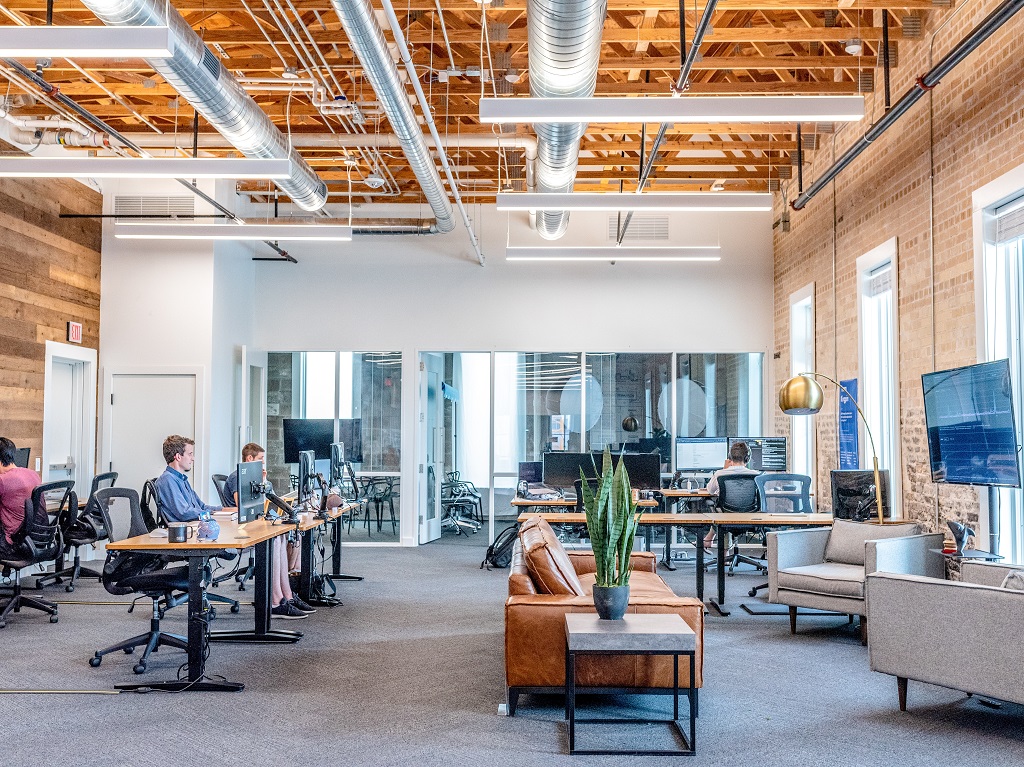After an enforced period of working from home, the recent government advice has instructed us to work from home where possible, so more people may be venturing into the office depending on the nature of their work and depending on local lockdown restrictions. However, the usual water cooler conversations, tea rounds and hot desking are unlikely to be a part of the ‘new normal’ in the office.
That’s because businesses of all sizes need to adopt certain measures to make their workplace COVID-safe, minimising the risk of transmission between colleagues. Some of these measures, though, aren’t entirely environmentally friendly, and any business with a good Corporate Social Responsibility (CSR) policy, should be considering sustainability while also putting their employees’ safety first.
Here are just a few simple ways that business leaders can sustainably implement stringent COVID-19 measures in the office.
Consider a work-from-home blend
Our research shows that 75% of small and medium business (SME) decision makers believe COVID-19 has made them feel differently about how they run their business, with a new renewed focus on flexibility. Not only does working from home give employees more freedom and flexibility, but it’s also positive for the environment. Less traffic on the roads leads to fewer emissions, so cutting down from commuting five days a week to just two or three days can have a positive impact.
Reusable face masks
Wearing a face mask in communal spaces is likely to be one of the top regulations for returning to the office, especially where many small businesses share office buildings with other organisations. In fact, we’re estimated to currently be using 129 billion face masks globally every month.
While we all most likely have a few lying around the house by now, providing employees with washable, reusable face masks is much better for the environment than using a new, disposable mask every day, as they contain single-use plastics.
The most sustainable masks available are made from organically grown cotton, and are locally sourced, meaning they have a low carbon footprint. Plus, quilting cotton has been proven to be one of the best materials to minimise against transmission, as the two layers are stitched together and have the best ‘stopping capability’. However, some organisations are looking into more sustainable materials; one business in France is currently making face masks from hemp, which is an entirely natural product.
Screens in-between desks
We’ve become used to seeing acrylic screens as a protective measure in supermarkets and cafes, and businesses should also implement screens in offices between desks to prevent the spread of COVID-19. These screens are important, but are there any sustainable alternatives?
They might be more difficult to source, but the answer is yes. Screens can be made from recyclable materials, like carboard, with a small vision screen so that employees can see their co-workers. Once you don’t need them anymore, the materials can be recycled. If you have already purchased plastic screens, try to store them for reuse or repurposing, as opposed to disposing of them.
Non-toxic cleaning products
One of the many things we know we can do to protect against coronavirus is to clean. Washing our hands and cleaning the surfaces we touch is incredibly important, but many cleaning products can be damaging to the environment. Providing more natural, non-toxic disinfectants products is a simple way to make the return to the office more sustainable. You can also use biodegradable antibacterial wipes.
Removing communal furnishings
If you’re making space for social distancing in the office and spreading out desks, you may have to remove some of the home comforts, like sofas and communal area furniture, from around the office. If you are getting rid of furniture from the office, try to rehome or recycle it, or even donate it to charity, to avoid adding it to landfill.
There are other COVID measures that will have an impact too – less energy consumed and less paper waste – all of which will positively influence your contribution to sustainability and carbon emission reduction. The pandemic has caused us to stop and think about how we want our new ‘normal’ to look and what our value-based system is now, and your return to the office should be an important element in this. Consider your own business’ needs and what means you have at your disposal – and don’t be afraid to be creative.









